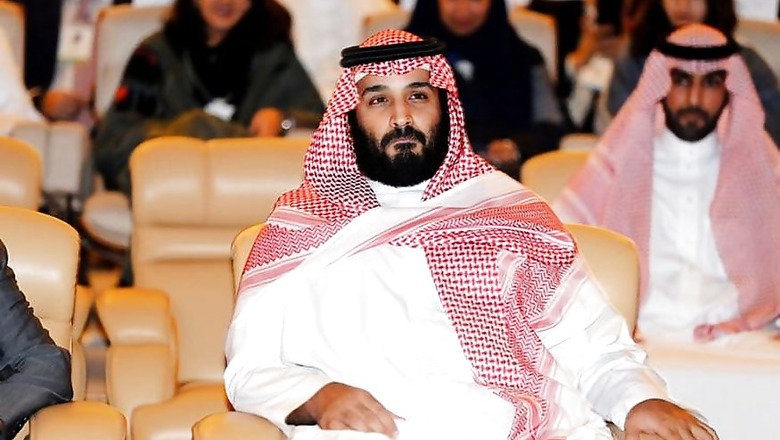
views
The Saudi prince acknowledged that he is a rich person and not poor and went on to say that he is not Mandela or Gandhi. He was recently revealed as the owner of a French chateau described as the world's most expensive home, according to a report in the New York Times.
But he insisted his wealth was a private matter. "As far as my private expenses, I'm a rich person and not a poor person. I'm not Gandhi or Mandela.
He added: "But what I do as a person is to spend part of my personal income on charity. I spend at least 51 percent on people and 49 on myself."
Saudi Arabia's crown prince Mohammed bin Salman is set to meet with US President Donald Trump in Washington on Tuesday.
Mutual rival Iran will be high on the agenda, but the 32-year-old strongman prince will also be looking to showcase his sweeping changes to Saudi society and an increasingly assertive foreign policy that includes the war in Yemen and an ongoing diplomatic feud with Qatar.
He spoke to CBS News on Sunday and these are the excerpts from that interview.
The prince also acknowledged that the Saudi society was dominated by a particularly harsh strain of conservative Islam, which he traces back to 1979, the year of the Islamic Revolution in Iran and the seizure by extremists of the Grand Mosque in Mecca. "We were victims, especially my generation that suffered from this a great deal," he said.
"This is not the real Saudi Arabia. I would ask your viewers to use their smartphones to find out. And they can google Saudi Arabia in the 70s and 60s, and they will see the real Saudi Arabia easily in the pictures.
"We were living a very normal life like the rest of the Gulf countries. Women were driving cars. There were movie theatres in Saudi Arabia. Women worked everywhere. We were just normal people developing like any other country in the world until the events of 1979."
He defended at length his anti-corruption purge which saw many of the kingdom's princes and tycoons detained for several weeks inside Riyadh's luxurious Ritz-Carlton hotel -- widely seen as an attempt to cement his grip on power. "What we did in Saudi Arabia was extremely necessary" and legal, he said.
He said he was able to recover more than "$100 billion" of ill-gotten wealth from the detainees, but added: "The idea is not to get money, but to punish the corrupt and send a clear signal that whoever engages in corrupt deals will face the law."
The prince has been accused of hypocrisy over his opulent lifestyle at a time when his government is preaching greater austerity of its citizens and has imposed new taxes.
As heir to the throne after his father King Salman dies, the young prince could be set to rule the kingdom for the next half-century or more. Asked what could stop him, he replied: "Only death."




















Comments
0 comment